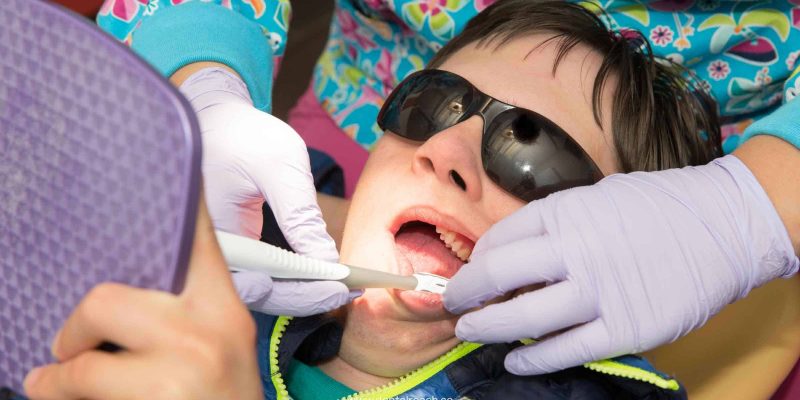ABC is essential steps used by medical professionals in differently abled persons. The protocol stands for airways, breathing and circulation. In the medical field, professionals manage any emergency by following ABC. Airway emergencies are a rising concern for clinicians among special need people. During dental treatment, they require medical, mental or psychological special consideration. Airway concerns can be viewed from preventive and operative aspects.
We define a special child or special case in a precise way considering certain rules for their conditions. As per American Academy of Paediatric Dentistry, a patient with the special need is defined as “any physical, developmental, sensory, behavioural, cognitive and emotional impairment or limiting conditions that require medical management, healthcare intervention and/or use of specialised health services or programs”. Now the classification derived from this definition includes physical handicapping such as cerebral palsy, mental retardation, congenital defects such as cleft lip and palate, metabolic and various systemic disorders, immunological syndromes, convulsive disorders, autism, blindness, deafness, neoplasia, intrinsic and extrinsic handicapping along with medically compromised handicaps. Risks of airway obstruction get reduced maximally by the cooperation of mentally and intellectually sound patients. Whereas in cases of children with low threshold and minimal cooperation, the whole emphasis of practitioner is based on reducing iatrogenic causalities.
The protocols of management revolve around treatment planning while emphasising the airway concerns. Practitioners have designed the treatment plan based on cooperative behaviour of special needs people. They have to control the anxiousness of mentally sound patients to examine with advanced dental procedures, which includes designing, alterations of cavities and pulp therapies. Good experiences with doctors may boost up their confidence level.
The management and practitioners use a wide range of criteria to handle those patients. Physician uses their own hand for mouth opening rather than applying any kind of machines to make them feel comfortable. In the subsequent line of treatment, a newer technique has been introduced in dentistry by Dr Joe Frencken, named as “ART- Atraumatic Restorative Technique”, this technique is a successful model of treatment plan for patients with compromised cooperation. In this mode of treatment, no machinery or mechanical trauma is induced but instead, the cavities are limited to hand instruments and low metallic restorations, restorative materials like Glass Ionomer Cement and Composites are a part of this technique. In case of complex treatment, throat shields are an isolating material of choice with suction, provided cooperation is achieved.
Nature by its own way regulates the airway management by its construction of epiglottis and through the function of epiglottic fold, which involuntary acts as a barrier between the respiratory and deglutition pathway and by default closes upon wide opening of mouth. Certain times airway management not only matters during natural procedures but also majorly signifies itself during emergency management, which in case of any compromised patient is undertaken by the use of emergency drugs, adrenaline hitting the first in list. Adrenaline by nature is a vasoconstrictor which majorly helps in reducing laryngeal oedema and clearing the pathway for the airway. In the case of airway obstruction cases due to asthma, bronchodilators and sympathomimetics, such as salbutamol, salmeterol can be induced. Corticosteroids remain a question mark in patients with special need and are administered based on an overall assessment of the patient immunity system. The chemical way of approach remains only in case of emergency but can be used as preanesthetic medications and adjuvants to prevent any precipitation of medical complications.
The actual management of any patient with special need is a group effort of well experienced and knowledgeable doctors, who are ever ready to take up the risk assessment and risk management of any airway obstruction, but as a general practitioner we need to be clear with our ethics, first aid management and emergency drugs in our list. With the knowledge of these, also added to the priority list there has to be no hesitation in consultation with senior doctors, and regular therapists of the patient. A well explained medical history, confirmatory tests and informed consent always help to maintain a safe practice.
Concluding it with the warmth of the words spoken by Ms Tara McCallan “A diagnosis can`t predict the extraordinary love you will have for your child” Any person with special needs requires love, guidance, encouragement, positive influence and a life teacher. We as practitioners can be the life teacher for many such patients who don’t fit into the boxes. Therefore, our approach to such people changes the way they look at us as a community and cooperation are inevitably achieved.
Bonus: Download our monthly e-bulletin!Click here to get it
DISCLAIMER : “Views expressed above are the author’s own.”




















Comments